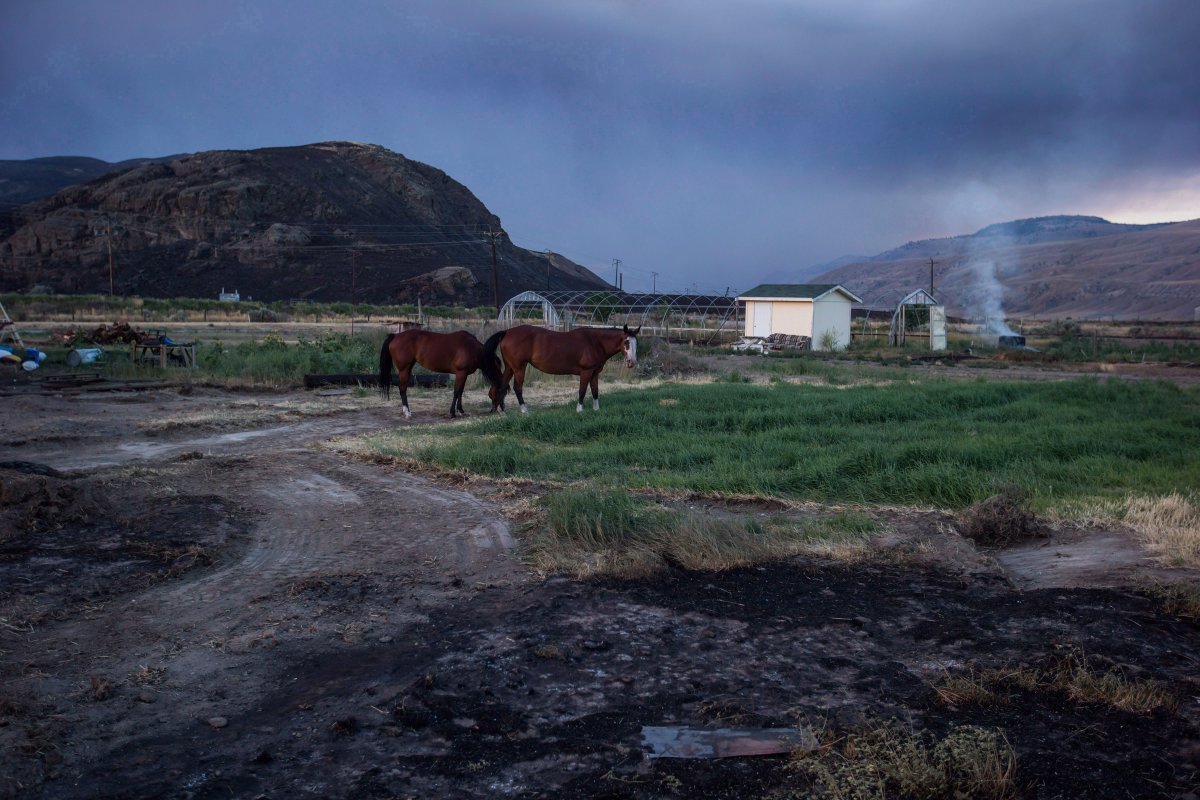People in the Grand Forks region have collected thousands of pounds of hay to feed animals impacted by the wildfires that continue to plague British Columbia.

However, now they need volunteer drivers with the right equipment to get the hay to an animal evacuation centre in Kamloops and other locations where the animals are being fed.
They are looking for volunteers with pickup trucks capable of towing flat-deck trailers full of hay. They are also in need of flat-deck trailers or other equipment that can be used for hauling hay.
Smaller square hay bales will need to be driven from Grand Forks to the KXA Animal Evacuation Centre in Kamloops.
The evacuation centre coordinator said larger, round bales will need to be transported directly to locations where animals that have remained in “fire zones” are being fed. The exact location will change depending on need, but has included places like Clinton and Cache Creek.
“We’ve got animals that are actually in fire zones that are being shipped food,” KXA Animal Evacuation Centre manager Judy Banks explained.
Banks estimates they have helped 400 to 500 animals since early July. Animals have included horses, rabbits, pigs, goats, sheep, llamas and alpacas.
“If it eats, we’ve had it,” Banks joked.
Anyone interested in volunteering to drive the donated hay can send an email to cussondl@gmail.com.
The donated hay includes 15 large, round hay bales weighing approximately 1,200 pounds each.




Comments